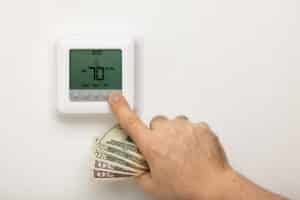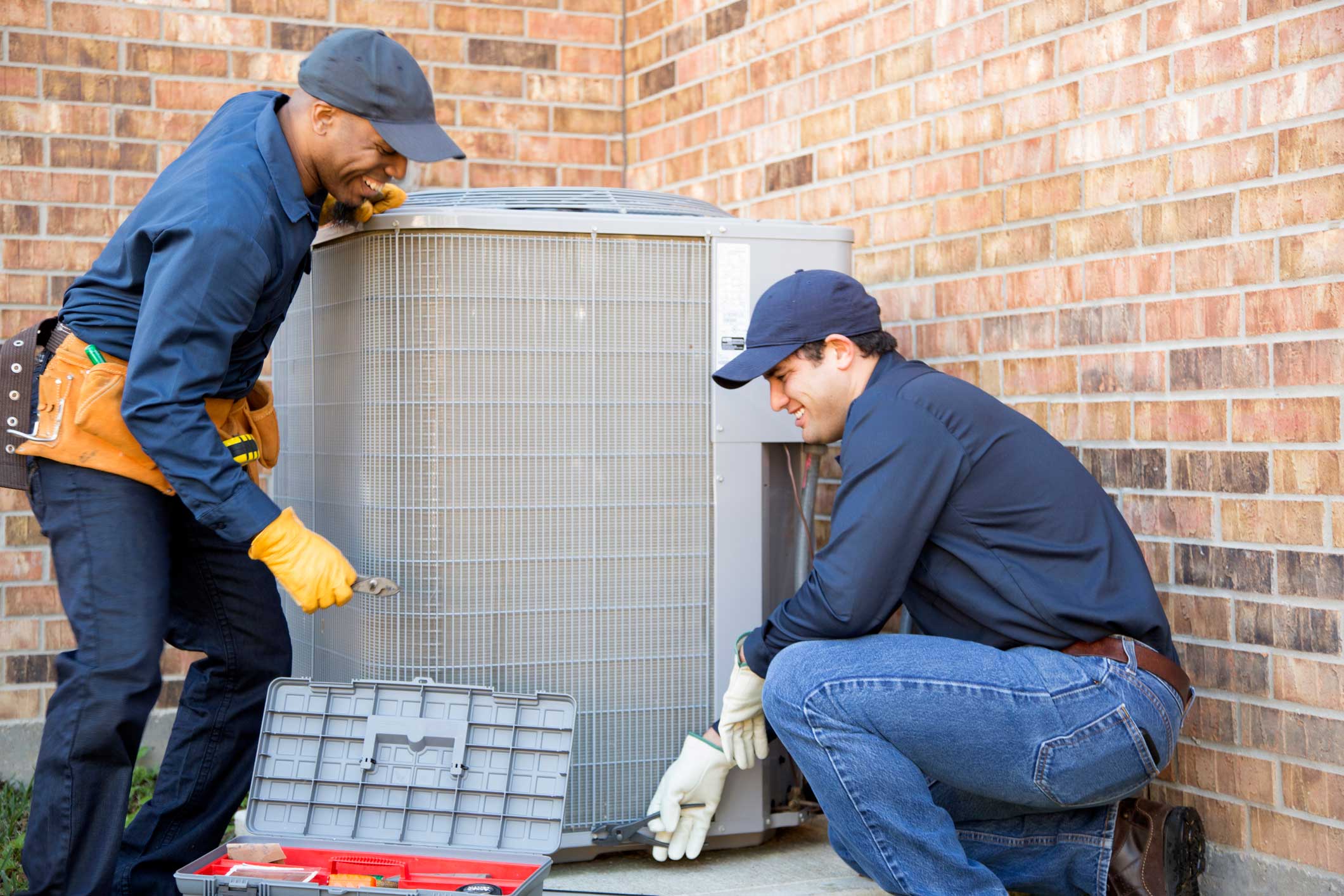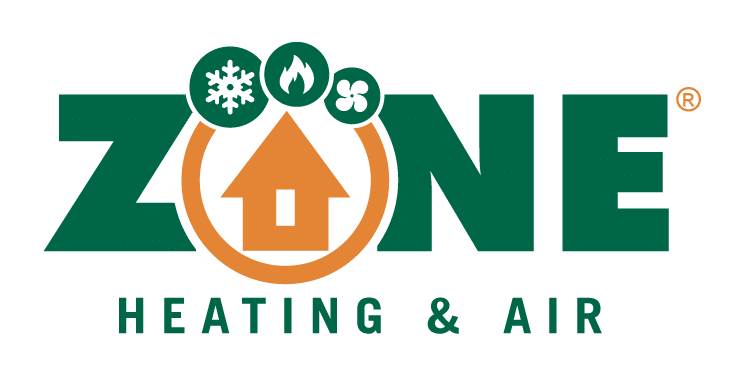 As summer temperatures soar, many homeowners find themselves grappling with the challenge of reducing summer HVAC costs. The scorching heat can send energy bills skyrocketing, leaving wallets feeling as parched as the summer landscape. There are plenty of ways to keep your cool without breaking the bank. In this guide, we’ll explore practical strategies for reducing summer HVAC costs that will help you beat the Georgia heat and save you money.
As summer temperatures soar, many homeowners find themselves grappling with the challenge of reducing summer HVAC costs. The scorching heat can send energy bills skyrocketing, leaving wallets feeling as parched as the summer landscape. There are plenty of ways to keep your cool without breaking the bank. In this guide, we’ll explore practical strategies for reducing summer HVAC costs that will help you beat the Georgia heat and save you money.
Understanding the Impact of Summer Heat on HVAC Costs
Before we dive into solutions, let’s take a moment to appreciate the scale of the problem. Nearly 90 percent of American homes have air conditioners, and these units gulp down a whopping six percent of all the electricity produced in the United States. That translates to a cool $29 billion annually for homeowners.
In some states, the situation is even more intense. Air conditioning can account for up to 27 percent of monthly power bills in hot, humid regions like Georgia, Florida or Louisiana. And with climate change heating things up, we’re looking at an 8 to 13 percent increase in energy demand from air conditioning usage in the next decade. This means that taking steps to reduce cooling costs is more important than ever.
10 Effective Strategies for Reducing Summer HVAC Costs
Now that we understand the scope of the challenge, let’s explore some practical solutions. These strategies range from simple habit changes to smart home upgrades that can make a significant difference in your energy consumption and bills.
1. Optimize Your Thermostat Settings
One of the easiest ways to start reducing summer HVAC costs is by adjusting your thermostat. The U.S. Department of Energy suggests that you can trim 10 percent off your energy bill by setting your thermostat 7 to 10 degrees higher for eight hours a day. Many people find that 78 degrees Fahrenheit is a comfortable AC temperature.
While this might seem a bit warm at first, your body will adjust, and your wallet will thank you. You can also use a programmable thermostat to automatically adjust the temperature throughout the day, so you don’t have to remember to do it yourself.
2. Invest in a Smart Thermostat
Speaking of thermostats, upgrading to a smart thermostat can be a game-changer in reducing summer HVAC costs. These nifty devices allow you to program temperature changes based on your schedule, ensuring you’re not cooling an empty house.
Some models even learn your habits and adjust automatically. As a bonus, many home insurance companies offer discounts for installing smart thermostats. It’s a win-win.
3. Harness the Power of Fans
Fans are the unsung heroes of summer cooling. A simple ceiling or circulating fan can make you feel 6 to 7 degrees Fahrenheit cooler through the wind-chill effect. This allows you to set your thermostat about 4 degrees higher without sacrificing comfort.
Remember, fans cool people, not rooms. So turn them off when you leave to avoid wasting energy.
4. Seal and Insulate
Your home might be leaking cool air without you even realizing it. Sealing cracks around windows and doors and ensuring proper insulation can make a huge difference in reducing summer HVAC costs.
Pay special attention to your attic. A well-insulated attic acts as a barrier against the intense summer heat, reducing the workload on your AC. This will help your system run more efficiently and save you money on your energy bills.
5. Leverage Natural Cooling Methods
Mother Nature can be your ally in reducing summer HVAC costs. Open windows at night to let in cool air, and close them (along with curtains or blinds) during the day to keep the heat out. According to the DOE, about 76 percent of sunlight that falls on standard double-pane windows enters to become heat.
Using light-colored curtains or reflective blinds can significantly reduce this heat gain. You can also use bathroom exhaust fans to remove heat and humidity from your home.
6. Regular HVAC Maintenance
Just like your car needs regular tune-ups, your HVAC system requires maintenance to run efficiently. A well-maintained system uses less energy and lasts longer. It’s recommended to schedule maintenance before the peak season hits.
Regular HVAC maintenance can help to ensure that your system is running smoothly and efficiently. This can save you money on your energy bills and help to prolong the life of your system.
7. Upgrade to Energy-Efficient Systems
If your HVAC system is over a decade old, it might be time for an upgrade. Modern, energy-efficient systems can save you up to 15% on energy costs. Look for units with the ENERGY STAR label for the best efficiency ratings.
Consider heat pumps as an alternative to traditional AC units. These systems can both heat and cool your home efficiently. In fact, mini-split heat pumps are becoming increasingly popular due to their efficiency and ease of installation.
8. Mind Your Appliances
Reducing summer HVAC costs isn’t just about your air conditioner. Other appliances in your home can contribute to heat gain, making your AC work harder. Use heat-generating appliances like ovens and dryers during cooler parts of the day.
Better yet, try grilling outside or using a microwave to avoid heating up your kitchen altogether. You can also wash your clothes in cold water to save energy.
9. Plant Shade Trees
For a long-term solution to reducing summer HVAC costs, consider landscaping. Strategically planted trees can provide natural shade for your home, reducing the amount of direct sunlight that heats up your interior.
While this solution requires patience, the payoff can be significant. Plus, you get the added benefits of improved curb appeal and potential increase in property value.
10. Consider Zoning Your Home
If certain areas of your home tend to be warmer or cooler than others, a zoning system might be worth considering. This allows you to control the temperature in different areas independently, avoiding the energy waste of cooling unused spaces. This can be a great way to save money if you have rooms in your home that are not used regularly.
The Financial Impact of Reducing Summer HVAC Costs
To truly appreciate the impact of these strategies, let’s look at some numbers. The following table illustrates potential savings from implementing various energy-saving measures:
| Energy-Saving Measure | Potential Annual Savings |
|---|---|
| Adjusting thermostat settings | 10% of cooling costs |
| Installing a smart thermostat | $180 |
| Regular HVAC maintenance | 15% of cooling costs |
| Upgrading to an energy-efficient system | 15% of cooling costs |
| Proper insulation and sealing | 15% of cooling and heating costs |
Remember, these are estimates and actual savings can vary based on factors like local energy rates, climate, and individual usage patterns. However, it’s clear that the potential for savings is significant.
FAQs about reducing summer HVAC costs
How to reduce AC cost in summer?
To reduce AC costs in summer, try setting your thermostat higher (around 78°F when you’re home), use fans to create a wind-chill effect, seal air leaks, maintain your HVAC system regularly, and consider upgrading to an energy-efficient model if your current one is old.
What time of year is cheapest to buy HVAC?
The cheapest time to buy HVAC equipment is typically during the off-seasons – fall and spring. During these periods, demand is lower and HVAC companies often offer discounts to attract customers. However, it’s best to replace your system before it completely fails to avoid emergency installation costs.
What temperature should my AC be in summer to save money?
The U.S. Department of Energy recommends setting your thermostat to 78°F (26°C) when you’re at home and need cooling. Setting it higher when you’re away or asleep can lead to even more savings. Each degree above 72°F can save you up to 3% on your cooling costs.
How to lower HVAC cost?
To lower HVAC costs, consider strategies like improving your home’s insulation, using a programmable or smart thermostat, regular maintenance of your HVAC system, using fans to supplement AC, and upgrading to an energy-efficient system. Also, try to reduce heat gain by using window coverings and avoiding heat-generating activities during the hottest parts of the day.
Conclusion
Reducing summer HVAC costs doesn’t have to mean sacrificing comfort. With a combination of smart habits, strategic upgrades, and a little help from Mother Nature, you can keep your cool without watching your hard-earned money evaporate like a puddle on a hot sidewalk.
Remember, every small change adds up. Whether it’s adjusting your thermostat, sealing a drafty window, or simply remembering to close the curtains on a sunny day, each action contributes to reducing summer HVAC costs. So as the mercury rises, take these tips to heart. Your wallet – and the planet – will thank you. Stay cool, save money, and enjoy the summer.
Ready to Save More? Schedule Your HVAC Maintenance Today!


